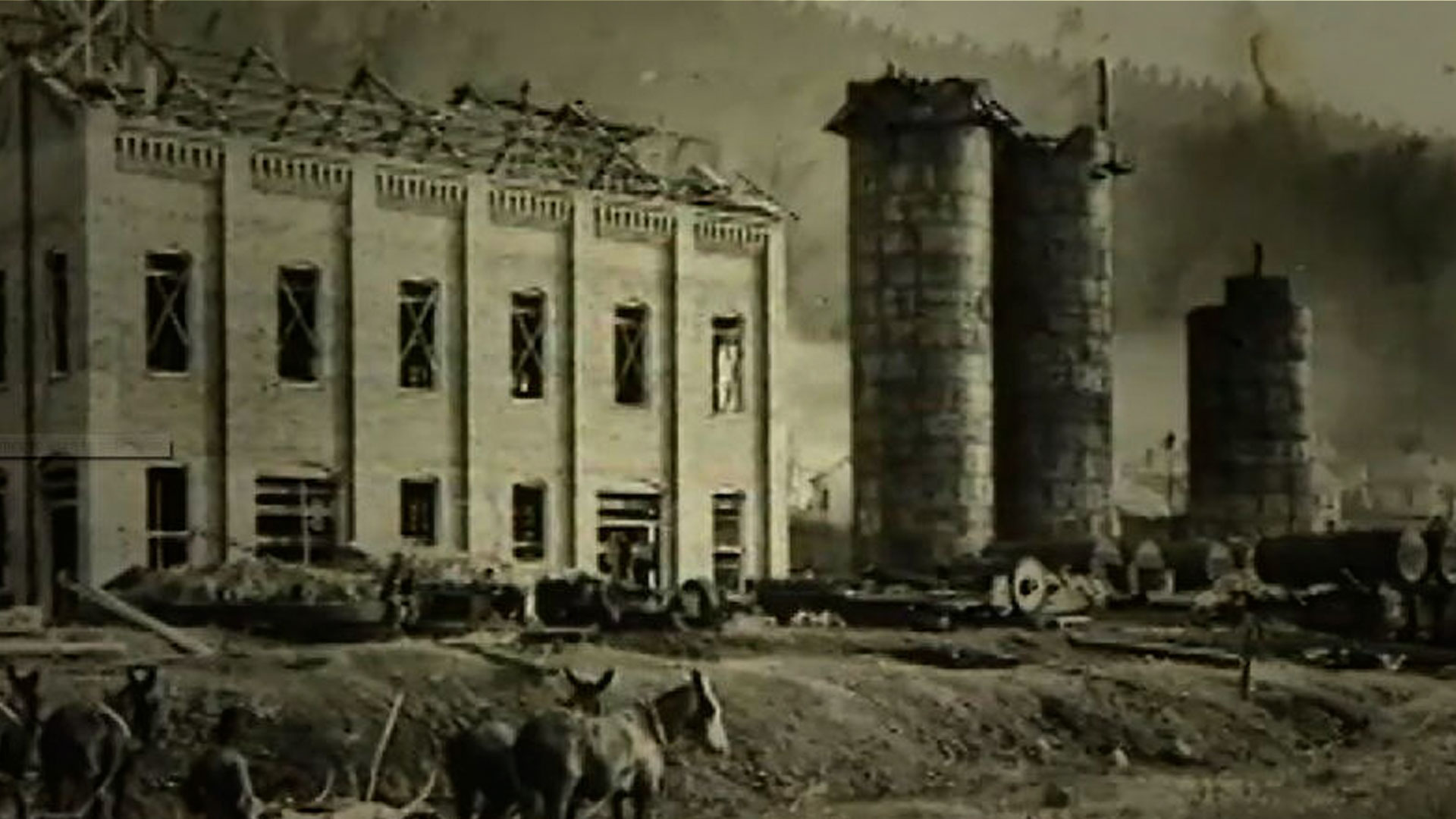FOUNDED: c. 1900
ABANDONED: 1905
REMAINS: Scattered bricks, rotted lumber, pieces of metal, two roofless buildings
COUNTY: DeKalb County, Alabama
STATUS: Still standing
History
The Rise and Fall of Battelle
At the beginning of the 20th century, Battelle, Alabama was a thriving and bustling mining community. In 1902, Battelle was discovered to possess an abundance of good grade iron ore, coal, and limestone, the key ingredients to making pig iron. Consequently, a group of Ohio mining speculators founded the Lookout Mountain Iron Company, helmed by the town’s namesake and primary investor, Colonel John Gordon Battelle. Though Colonel Battelle possessed larger iron and steel industry investments in the midwest and Ohio, he was most interested in his smaller Lookout Mountain operation. He eventually moved to the town and supervised mining activities. The State of Alabama organized a special charter with a capital stock of $1,000,000 to acquire and develop 15,000 acres of iron ore lands. The territory spread out to the base of Lookout Mountain, five miles north of Valley Head, Alabama. The town contained hundreds of houses, a commissary, a two-story school, a post office, a church, “two hotels for whites and one for Negroes,” a large store, company office, a supply house, stables, a furnace, and 150 beehive coke ovens (used to cook charcoal into cleaner-burning coal coke for fueling the furnace). Battelle even possessed its own water system, which pumped water from a spring into a large wooden tank to pipe into the surrounding homes.
By 1905, the mineral deposits were scarce and of insufficient quality, making it impossible to compete with Birmingham’s mining operations. The furnace was put on standby. Residents began to leave Battelle, marking its steady decline. It was not long before the town’s homes were completely vacant. The liquidation of Battelle’s assets began in November 1906. The blast furnace, 1,200 acres of mineral land, coal and ore mines, mining equipment, and 150 coke ovens were put up for sale. The British government purchased the nearly-defunct furnace during World War I, dismantling it and sending it to Calcutta, India. Colonel Battelle passed away in 1918, leaving behind his $4,000,000 inheritance to his only son, Gordon Battelle. In 1923, Gordon passed away. The remaining fortune was given to the Battelle Memorial Institute of Columbus, Ohio.
The empty town was briefly used during the 1940s by the Belcher Lumber Company of Centerville, creating a small surge in business. According to the National Transporation Safety Board, the Alabama Great Southern Train derailed at Battelle in January 1969. The propane tanks exploded on impact and rocketed into the surrounding area.
The Remains
Nature has reclaimed Battelle, with trees and deep brush growing where buildings once stood. A pair of roofless buildings have become overgrown with vines and leaves. Among the remains are remnants of a few of the beehive coke ovens, scattered bricks, rotted lumber, pieces of metal, and domestic rose bushes. The area is populated with insects, bobcats, bears, and snakes. Permission is required in order to visit the ghost town, as it is only accessible through a privately owned road.
Robert N. Mann, the first child to be born in Battelle, has supplied most of the known historical information and photography about the town. He is the Cherokee County Historian and the president of the Cherokee County Historical Society.
Sources
- Alabama. “This ghost town deep in the Alabama woods holds a ghostly legend,” www.AL.com
- Ghost Towns. “Battelle,” www.GhostTowns.com
- Tour DeKalb. “History – Battelle,” www.TourDeKalb.com
- Wikipedia. “Battelle, Alabama,” www.Wikipedia.org
More
- Have a personal experience here? Tell us about it!
- Have more information about this haunt? Send it to us here!
- Have an image you want to submit? Upload it here!

